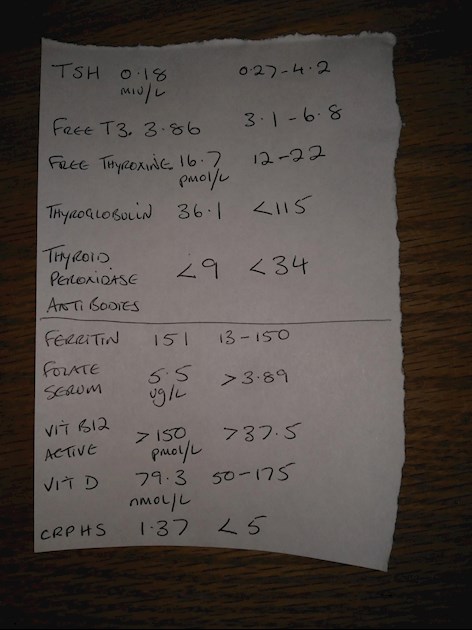Hi, here are my recent blood results:
I supplement vit d, which I shall now reduce.
I was on 100mg of thyroxine, as from the day after my blood test I am now on 75mg, my GP did this without consulting me.
Any advice will be most welcome.
Kind regards, ROWENNA 🌸🍀🌸🍀🌸
